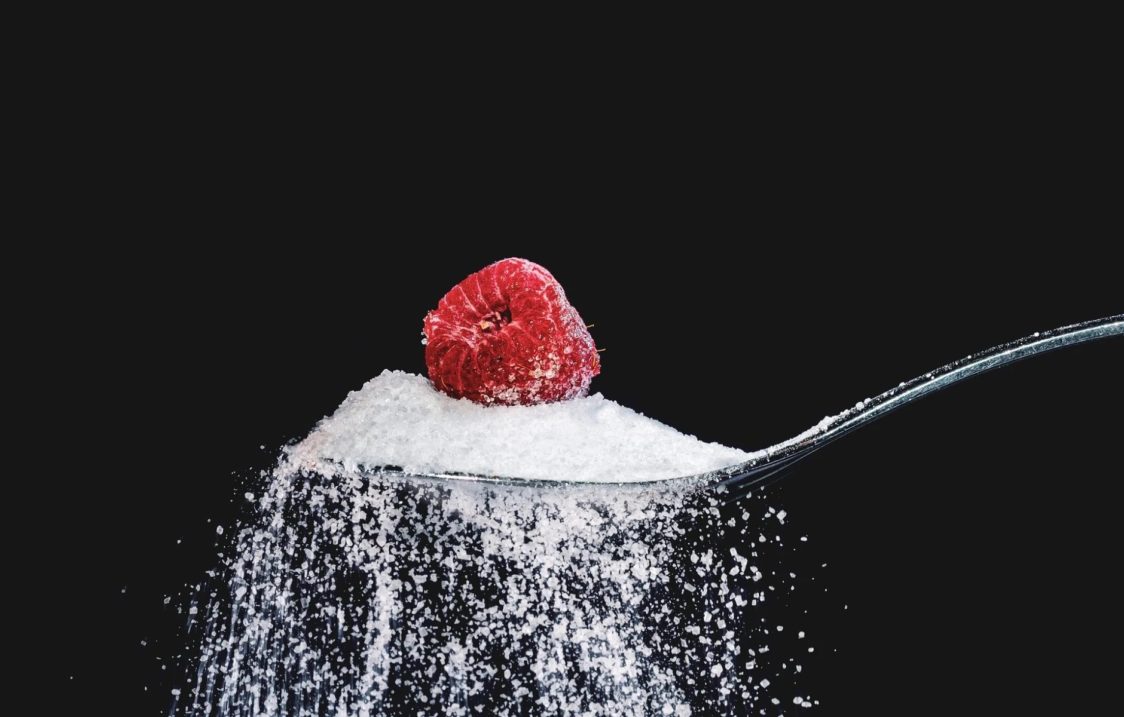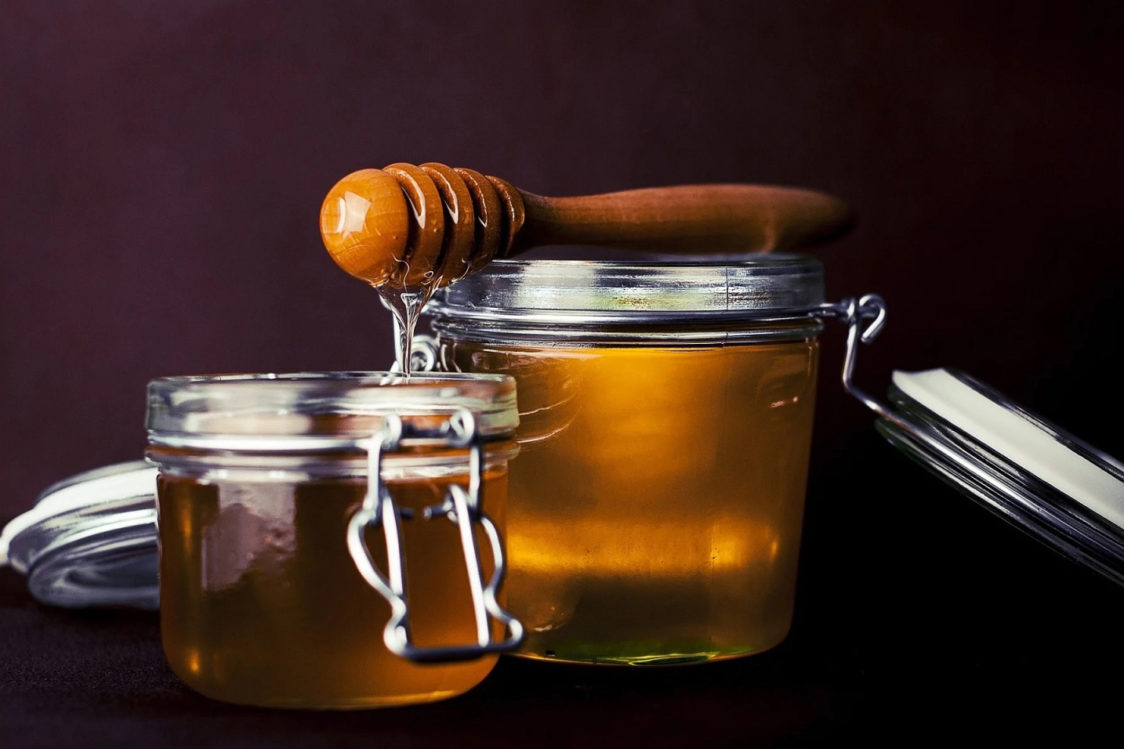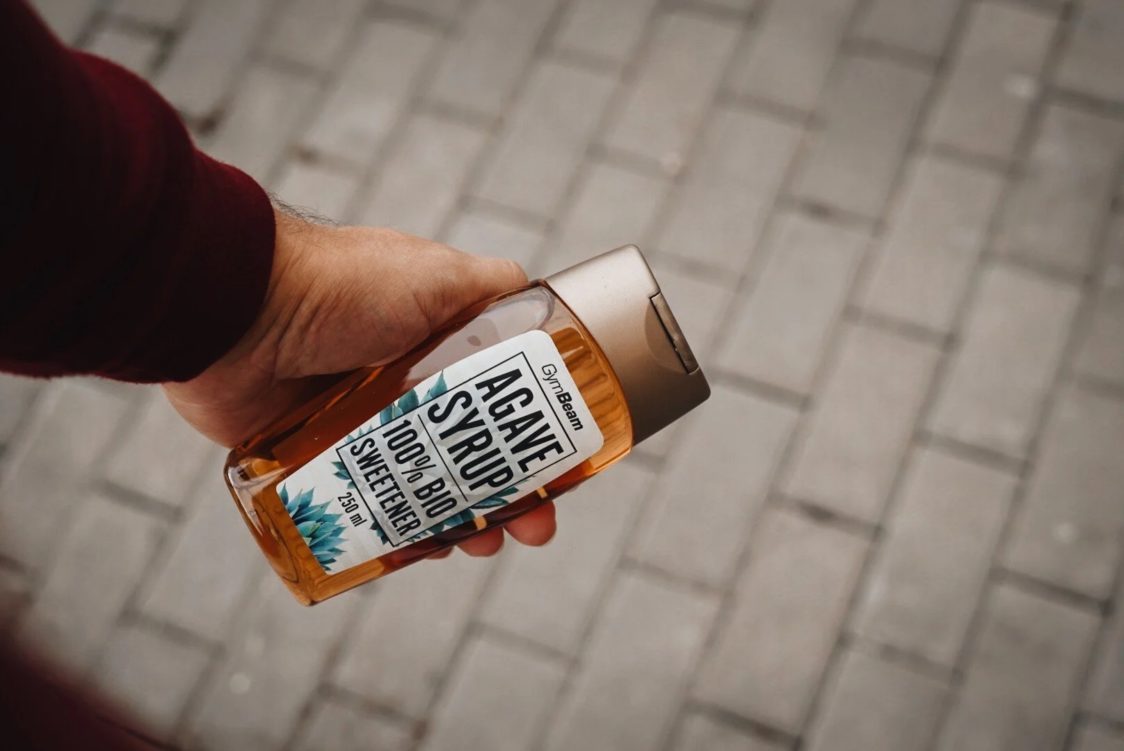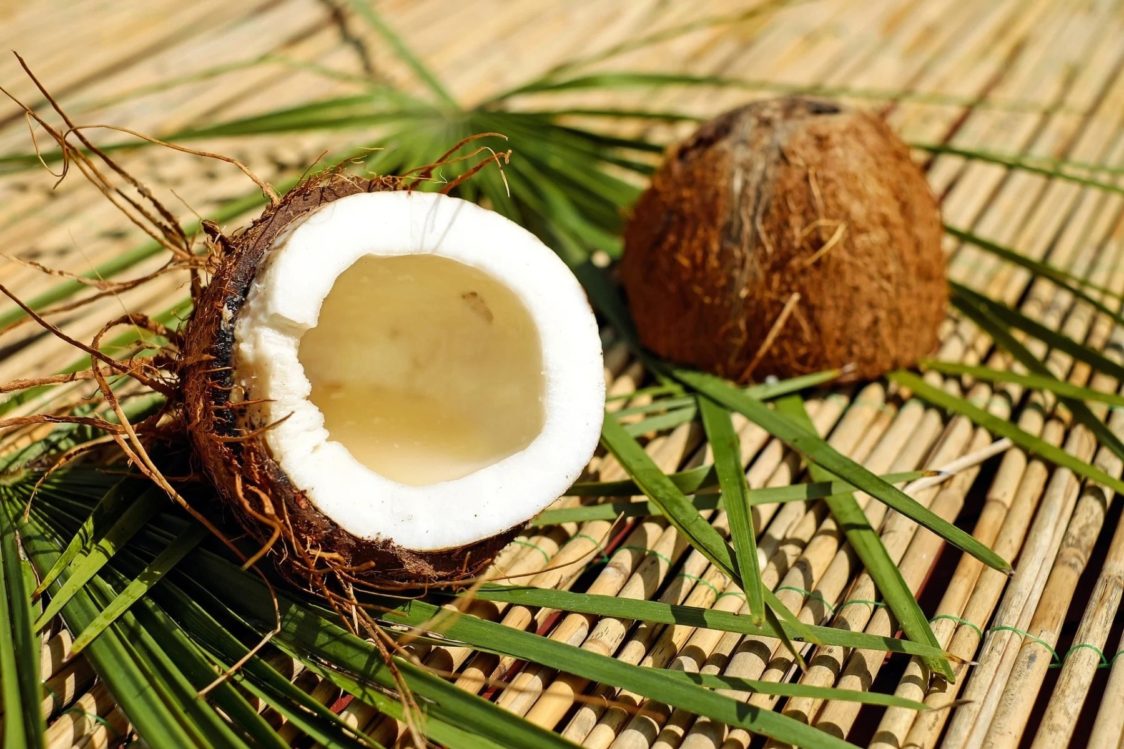Table of Contents
We all have our weaknesses when it comes to our eating habits. Some people love salty chips, and others love sweet treats. But sometimes it is tough to give up your maladies when trying to eat healthily. If you belong to a group of people who cannot imagine their day without sweets, you should be aware of the risks associated with excessive sugar intake.
But what is the optimal dose of sugar intake? For men, it is approximately 37 g of added sugar per day, for women 25 g of sugar. This means that if an adult man ate one chocolate bar containing 20 g of sugar and drank a small can of Red Bull containing 26 g of sugar, he would considerably exceed his recommended daily sugar intake. With such a quick, unhealthy snack, you will intake too much sugar into your body, which can cause several health problems. [1]

Health risks associated with excessive sugar use
Excessive sugar use causes several health problems. Frequent intake may lead to heart problems, bad cholesterol and obesity, insulin resistance or diabetes. Refined sugar contains a high amount of calories, but has no other nutritional benefit. These are so-called empty calories because they do not contain the proteins, fats, fibre, or any vitamins, minerals or antioxidants that our body needs and could be beneficial to the health of the organism. [1]
Take a look at the most common problems people are facing when they overuse sugar:
- more frequent tooth decay
- obesity
- malnutrition or poor diet
- type 2 diabetes
- increased risk of cardiovascular diseases
- yeast infections
- acne and bad skin
Sugar causes obesity
Many studies suggest that regular sugar intake leads to weight gain and in many cases to obesity. They also show that people who take sugar-sweetened drinks daily have a higher risk of developing obesity than those who take sugar in another form. One can of 375 ml of cola contains up to 38.9 g of sugar. This represents about 10 cubes of sugar. [2] [3] [4]
Do you know how much sugar one litre of pure water contains? Right, none. Therefore, you should think twice about what drink to quench your thirst with. A recent review of studies in more than 200,000 adults has found a significant link between sugar-sweetened beverages and obesity. This is because drinks such as flavoured drinks, juices and sweet teas are sweetened with a simple type of sugar – fructose, which significantly increases hunger and desire for food. Drinking soft drinks in excessive amounts is also associated with increased levels of visceral fat. [2] [3] [4]
However, the risk of obesity is highest in case of children. It has been shown that children tend to consume much more sugar than they should; therefore, you should control their sugar consumption. A study on a sample of several thousand children found that those who consumed more added sugar had significantly higher body fat levels than children who consumed less added sugar. [3] [4]

Sugar increases the risk of type 2 diabetes
Studies and many doctors have concluded that obesity or the cardiovascular problems associated with it are largely responsible for developing second-degree diabetes. Obesity, often caused by consuming too much sugar, is considered to be the most potent risk factor for diabetes. Studies have also shown that people who drink sugar-sweetened drinks are more likely to develop diabetes than those who drink unsweetened tea or water. In this type of diabetes, the body has a reduced sensitivity to blood sugar and insulin, which is produced unnecessarily too much. If you are diagnosed with this type of diabetes, you need to lose weight, take the prescribed medications and follow a diet that consists of regular food intake and reducing fats, carbohydrates, but especially sugars. [4] [5] [6]
Glucose vs. Fructose
Before we have a look at sugar substitutes and their benefits, the difference between glucose and fructose needs to be explained. In order to gain energy, our body must receive it from its most abundant and most efficient source, which is carbohydrates. These are converted into glucose, which is a rapid source of energy for the body when taken into the body. Fructose, on the other hand, is a simple monosaccharide that is commonly found in fruit, vegetable and many other types of food, such as honey. [7]
However, fructose our body cannot process as well as glucose. Some fructose is processed in the liver, and the rest is stored in the body as fat. Therefore, excessive consumption of fructose can cause weight gain. Consequently, cholesterol, fat deposits around the body organs and blood pressure increase. As a result, the organism is prone to developing type 2 diabetes because it can raise blood sugar and insulin levels. Fructose can be found in refined sugar, but also in some natural sweeteners. [7]

Artificial sweeteners
Artificial sweeteners are sugar substitutes that have been created in laboratories and cannot be commonly found in nature. They are often much sweeter than regular sugar and are therefore referred to as “intense sweeteners”. They are predominantly used as a sweetener in beverages or nutritional supplements, since, despite their sweet taste and a similar molecular structure to that of sugar, artificial sweeteners contain a minimum or almost no calories.
The best known artificial sweeteners include sucralose, aspartame, saccharin or acesulfame potassium. Although they are chemically created food additives, they do not pose a danger to human health. The European Commission for Additives allows the use of these sweeteners, but it is necessary to adhere to their recommended daily dose. [9] To learn more about artificial sweeteners and whether they are truly harmful, read our article Artificial Sweeteners – Myths and Facts about their Safety and Health Effects.
Natural sugar substitutes
Just as we can create our own sugar substitutes, we can find its substitution in nature. So if you have already decided to remove sugar from your diet for any reason, but you still lack sweets, you don’t have to despair. There are a few great tips to replace table sugar in the diet with a natural alternative. What are they?
1. Honey
Honey is a viscous sweetener that has truly natural processing. The first step is that bees so-called the worker bees harvest nectar, called honeydew, from flowers or other plants and carry it to the hive. There it serves as food for all bees, which they keep in the hive as in some warehouse. It is at that time that various chemical reactions occur, and honey begins to form honey. Then it is collected by beekeepers and moved for further processing.
Honey has several health benefits. It is full of antioxidants, such as organic acids or flavonoids, which have potent anti-inflammatory effects and strengthen the body’s immune system. Antioxidants have also been associated with a reduced risk of heart attack, stroke and some types of cancer. In general, the darker the honey, the higher the levels of antioxidants. [10]
Honey also acts on the body’s cholesterol levels, helping to lower “bad” LDL cholesterol, while increasing “good” HDL cholesterol. However, despite its natural process of formation, it contains a high amount of fructose. But not as much as refined sugar. Honey is a healthier alternative to sugar, but its consumption should not be exaggerated. Besides, one study in people with type 2 diabetes has shown that although honey raises blood sugar level, it is not as severe as consuming table sugar. [10] [11] [12]
Why honey is a better choice than refined sugar:
- contains fewer calories
- is a natural sweetener
- has anti-inflammatory effects
- is full of antioxidants

2. Agave syrup
Agave is a type of honey nectar that arises from the leaves of Agave tequilana. It is a succulent plant from Mexico, whose nectar is used to make tequila. Due to its sweet taste, however, it is mainly used for sweetener production. Long ago, the Aztecs appreciated the sweet taste of agave and used it to flavour food and drinks. However, in addition to its versatility as a sweetener, agave nectar can provide certain health benefits, making its use healthier than sweetening with ordinary sugar. Agave contains high amounts of vitamins and antioxidants that protect our body from external traps. [14]
Agave syrup, however, still has a high amount of calories and, if consumed in large quantities, can contribute to weight gain or tooth decay. In general, yet, it has a much lower glycemic index than refined sugar, which does not lead to a sharp rise in blood sugar. Nevertheless, its nutritional values are identical to honey, but due to the high amount of fructose, it may contain more calories. However, this applies to Agave syrups that are chemically processed, so they cannot be ranked as BIO products. [13]
Why agave syrup is a better choice than refined sugar:
- contains fewer calories
- is a natural sweetener
- is full of antioxidants
- has a lower glycemic index
- does not rapidly increase blood sugar

3. Stévie
Stevia is a natural sweetener that comes from Stevia Rebaudiana Bertoni and can be considered a sunflower species. However, there are up to 150 varieties of stevia in the world, and they are most common in North and South America. Nevertheless, Stevia has become a popular sweetener, and you can also grow it at home. Its processing is really simple – it starts with the process of collecting leaves, drying them, extracting with water and then cleaning. Only such processed stevia has a sweet taste, in the raw state, its taste is very bitter and even has an unpleasant smell. [15] [16]
Stevia is generally 200 to 300 times sweeter than table sugar but contains much fewer calories. To be precise, it contains no calories. This makes it an ideal sweetener suitable for weight loss diets or for people who control their caloric intake. Low calories qualify stevia as a healthy alternative to diabetes control or weight loss. Research has not shown any effect of stevia on blood glucose or insulin levels. This allows people with diabetes to eat stevia-sweetened foods while maintaining healthy eating habits. [15] [16] [17]
Why stevia is a better choice than refined sugar:
- is 200 to 300 times sweeter
- does not contain any calories
- it has no effect on blood sugar or insulin levels
- is suitable for weight loss diets
4. Erythritol
Erythritol belongs to a class of compounds called sugar alcohols. These are used as a low-calorie sweetener in sugar-free or low-sugar products and as part of healthy recipes. This is because erythritol contains very few calories compared to other alcohol sugars. The structure of its molecules gives it the ability to stimulate sweet taste receptors on your tongue. However, it is truly important to take care of the optimum intake of this sweetener, as excessive consumption, as of any sweetener, can cause certain problems. [18]
Thanks to the unique chemical structure of erythritol, your body can easily digest it. However, excessive consumption may cause flatulence and bloat. This is because when the sweetener accumulates in large quantities in the large intestine, it begins to ferment to resistant bacteria that produce gas and thus cause digestive problems. However, if you consume erythritol at the optimum dose, your body absorbs it very quickly and excretes it in the urine within 24 hours. This means that erythritol has no chance to metabolise or ferment, so it does not accumulate or convert into energy in your body. [18] [19]
Several studies have linked the use of erythritol with a reduced risk of developing cardiovascular problems in people with type 2 diabetes. This is due to the low caloric volume of this sweetener, which has no effect on blood sugar or insulin levels. Erythritol is also produced in the fermentation process of groceries such as wine, beer or yoghurt. It is also commonly found in groceries under the E968 labelling, as it is apart from the natural also an artificial sweetener. Most often its powder form is used as a part of tasty and healthy recipes. [19] [20]
Why erythritol is a better choice than refined sugar:
- contains fewer calories
- its use is associated with a reduced risk of developing cardiovascular problems
- it has no effect on blood sugar or insulin levels
- it is used as part of tasty and healthy recipes

5. Xylitol
Xylitol is a birch extract and therefore a natural sweetener. Physiologically, it is almost indistinguishable from table sugar as it has the same shape and colour. However, if we took a grain of xylitol under the microscope, we would find that it is significantly different from sugar. Xylitol, together with erythritol, is categorised as a sugar alcohol and is commonly found in many fruits and vegetables. Even our body can produce it in small quantities, but its level is negligible. [21] [22]
Despite its sweet taste, xylitol contains 40% fewer calories than table sugar. Besides, it has a very low glycemic index – regular sugar has a GI of 60-70, while xylitol has a GI of 12. Also, it contains no fructose and has negligible effects on blood sugar and insulin levels. For people with type 2 diabetes or obesity, xylitol is an excellent alternative to sugar. It is usually a part of chewing gum without sugar, confectionery and food suitable for people with diabetes. [23]
Moreover, unlike sugar, xylitol does not cause tooth decay, so many dentists also recommend its consumption. Studies have shown that xylitol improves tooth health, strengthens enamel, removes coating, and helps prevent tooth decay. [24]
Why xylitol is a better choice than refined sugar:
- contains 40% less calories
- is suitable for weight loss diets
- has a significantly lower glycemic index
- does not contain fructose
- does not cause tooth decay
- it does not affect blood sugar and insulin
6. Coconut sugar
Coconut sugar is made from a coconut palm, namely the liquid pulp of its flowers, which is then dried to granulated sugar. Its colour is similar to that of raw sugar, but the size of the particles is usually smaller or more variable. People often think it is made of palm oil, but that’s not true. Another type of palm is used to produce palm oil. [25]
In the process of production, water is evaporated from the pulp of palm flowers, but the sap that is produced retains many essential nutrients. Thus, granulated sugar can boast a rich mineral profile such as iron, zinc, calcium and potassium. It is also exceptional for its content of healthy fatty acids and a chain of several antioxidants that protect our organism. It also contains inulin fibre, which can slow down glucose absorption, allowing our body to maintain high levels of energy for an extended period. It also explains why coconut sugar has a lower glycemic index than regular table sugar. [26]
Although coconut sugar contains many important nutrients, you would need to consume it in very high doses to absorb its benefits fully. However, despite its low GI, coconut sugar has a significantly higher amount of calories than many natural sweeteners. Although you can read several statements that coconut sugar does not contain fructose, the opposite is true. It contains 60 to 80% of sucrose, which is predominantly fructose. For this reason, coconut sugar delivers almost the same amount of fructose to the body as regular sugar. [27]
Why coconut sugar is a better choice than refined sugar:
- contains fewer calories
- contains rich minerals such as iron, zinc, calcium and potassium
- has a significantly lower glycemic index
- it contains inulin, which slows down the absorption of glucose

7. Dextrose
Dextrose, also called grape sugar, is a type of simple sugar that performs the same function as glucose. It is, therefore, a fast energy source for our body, which has a sweet taste and is often used in baking and cooking as a sweetener but also for medical purposes. In combination with the right medicines, it is used to increase blood sugar. As it is a type of glucose, it is most often found in energy drinks for its immediate energy pump. However, it is commonly found in fruits, along with fructose. Dextrose is a monosaccharide essential for the existence of the human organism. It is the fastest and most basic energy source for the human body, especially for athletes. It contains fewer calories than sugar, but these values are still higher than in the case of most sweeteners. [30]
Why dextrose is a better choice than refined sugar:
- contains fewer calories
- is a simple type of sugar
- is an immediate source of energy
- it is used to raise blood sugar
- is suitable for athletes
Other types of natural sweeteners:
- Cane brown sugar – Unlike white sugar, it is not produced chemically, but it still contains a high amount of calories. Because it retains molasses in its production, it contains several vitamins and minerals. However, sugar is not a suitable source of nutrients.
- Maple sirup – It arises from sap maple. Although it contains sucrose and hence fructose, it is always less than refined sugar. Besides, it contains many health beneficial antioxidants.
- Organic sweetener Turbinado -It is partially refined sugar with a smooth caramel flavour. It is made from non-genetically modified sugar cane but contains the same amount of calories as white sugar.
- Corn syrup – It is a simple sugar that is produced by extracting corn and processed into a liquid form. It is, therefore, glucose, which is an immediate source of energy for our body. Conversely, corn syrup sweetener with a high amount of fructose is actually a natural corn syrup that has been converted from glucose to fructose by a chemical process. It is, therefore, a natural sweetener. [31]
Have a look at how many calories each type of sweetener contains and what the glycemic index is: [28] [29]
| Type of sweetener | Number of calories per 100 g | Glycemic index |
|---|---|---|
| Table White sugar | 400 kcal | 80 |
| Honey | 306 kcal | 50 |
| Agave syrup | 297 kcal | 15 |
| Stevia | 0 kcal | 0 |
| Erythritol | 0 kcal | 1 |
| Xylitol | 240 kcal | 12 |
| Coconut sugar | 376 kcal | 35 |
| Dextrose | 365 kcal | 100 |
| Cane brown sugar | 380 kcal | 64 |
| Maple syrup | 260 kcal | 54 |
| Turbinado | 399 kcal | 65 |
| Corn syrup | 319 kcal | 75 |
Tips on how to effectively remove sugar from your diet
- try to sweeten your tea or coffee with honey rather than sugar
- when baking and cooking, try to replace the sugar with erythritol or xylitol
- prefer snacks sweetened with a different sweetener than sugar
- check the proportion of carbohydrates, sugars and calories in your food and reach for options with lower values
- try to drive away sugar cravings with fruit or 100% juices
- instead of milk chocolate, reach for dark chocolate with a higher amount of cocoa
- replace the flavoured yoghurt with white yoghurt and sweeten it with honey or agave syrup
We believe that we have provided you with all the necessary information about sugar substitutes. So if you decide to stop using sugar in your diet for any reason, be aware that you don’t have to give up the sweet taste of your food. Just replace the sugar with the right sweetener and enjoy its benefits. If you liked the article, we would be happy for your support by sharing it.
[1] Alina Petre, MS, RD - What Is Refined Sugar? - https://www.healthline.com/nutrition/refined-sugar
[2] James M. and Theodore J. Angelopoulos - Sugars, obesity, and cardiovascular disease: results from recent randomized control trials - https://www.ncbi.nlm.nih.gov/pmc/articles/PMC5174142/
[3] Anna Pia Delli Bovi, Laura Di Michele, Giuliana Laino, and Pietro Vajro - Obesity and Obesity Related Diseases, Sugar Consumption and Bad Oral Health: A Fatal Epidemic Mixtures - https://www.ncbi.nlm.nih.gov/pmc/articles/PMC5536157/
[4] Jillian Kubala, MS, RD - 11 Reasons Why Too Much Sugar Is Bad for You - https://www.healthline.com/nutrition/too-much-sugar
[5] I. A. Macdonald - A review of recent evidence relating to sugars, insulin resistance and diabetes - https://www.ncbi.nlm.nih.gov/pmc/articles/PMC5174139/
[6] Laville M, Nazare JA - Diabetes, insulin resistance and sugars. - https://www.ncbi.nlm.nih.gov/pubmed/19207533
[7] Melissa Groves - Sucrose vs Glucose vs Fructose: What's the Difference? - https://www.healthline.com/nutrition/sucrose-glucose-fructose
[8] Kamal Patel - Artificial sweeteners - Is the evidence as sweet as these substitutes? - https://examine.com/nutrition/artificial-sweeteners-is-the-evidence-as-sweet-as-these-substitutes/
[9] Kris Gunnars, BSc - 10 Surprising Health Benefits of Honey - https://www.healthline.com/nutrition/10-benefits-of-honey
[10] Sarfraz Ahmed, Siti Amrah Sulaiman, Atif Amin Baig, Muhammad Ibrahim, Sana Liaqat, Saira Fatima, Sadia Jabeen, Nighat Shamim, and Nor Hayati - Honey as a Potential Natural Antioxidant Medicine: An Insight into Its Molecular Mechanisms of Action - https://www.ncbi.nlm.nih.gov/pmc/articles/PMC5822819/
[11] Otilia Bobiş, Daniel S. Dezmirean, and Adela Ramona Moise - Honey and Diabetes: The Importance of Natural Simple Sugars in Diet for Preventing and Treating Different Type of Diabetes - https://www.ncbi.nlm.nih.gov/pmc/articles/PMC5817209/
[12] Joe Leech, MS - Agave Nectar: A Sweetener That Is Even Worse Than Sugar? - https://www.healthline.com/nutrition/agave-nectar-is-even-worse-than-sugar
[13] Irving O. Velázquez Ríos, Gerardo González‐García, Erika Mellado‐Mojica, Rafael A. Veloz García, Jorge G. Dzul Cauich, Mercedes G. López,corresponding author and María I. García‐Vieyra - Phytochemical profiles and classification of Agave syrups using 1H‐NMR and chemometrics - https://www.ncbi.nlm.nih.gov/pmc/articles/PMC6341176/
[14] Katherine Marengo, LDN, RD - Everything You Need to Know About Stevia - https://www.healthline.com/health/food-nutrition/stevia-side-effects
[15] Margaret Ashwell - Stevia, Nature’s Zero-Calorie Sustainable Sweetener - https://www.ncbi.nlm.nih.gov/pmc/articles/PMC4890837/
[16] N. Sharma , R. Mogra and B. Upadhyay - Effect of Stevia Extract Intervention on Lipid Profile -http://www.krepublishers.com/02-Journals/S-EM/EM-03-0-000-09-Web/EM-03-2-000-2009-Abst-PDF/EM-03-2-137-09-047-Sharma-N/EM-03-2-137-09-047-Sharma-N-Tt.pdf
[17] Natalie Butler, RD, LD - Everything you need to know about erythritol - https://www.medicalnewstoday.com/articles/318392
[18] K. Regnat, R. L. Mach, and A. R. Mach-Aigner - Erythritol as sweetener—wherefrom and whereto? - https://www.ncbi.nlm.nih.gov/pmc/articles/PMC5756564/
[19] Munro IC, Berndt WO, Borzelleca JF, Flamm G, Lynch BS, Kennepohl E, Bär EA, Modderman J - Erythritol: an interpretive summary of biochemical, metabolic, toxicological and clinical data. - https://www.ncbi.nlm.nih.gov/pubmed/9862657
[20] Wölnerhanssen, Meyer-Gerspach, Beglinger, Islam MS - Metabolic effects of the natural sweeteners xylitol and erythritol: A comprehensive review. - https://www.ncbi.nlm.nih.gov/pubmed/31204494
[21] Kris Gunnars, BSc - Xylitol: Everything You Need to Know - https://www.healthline.com/nutrition/xylitol-101
[22] S. J. H. Ashcroft, L. C. C. Weerasinghe, J. M. Bassett, and P. J. Randle - The pentose cycle and insulin release in mouse pancreatic islets - https://www.ncbi.nlm.nih.gov/pmc/articles/PMC1178408/
[23] Chandrashekar Janakiram, C. V. Deepan Kumar, and Joe Joseph - Xylitol in preventing dental caries: A systematic review and meta-analyses - https://www.ncbi.nlm.nih.gov/pmc/articles/PMC5320817/
[24] Kris Gunnars, BSc - Coconut Sugar — A Healthy Sugar Alternative or a Big, Fat Lie? - https://www.healthline.com/nutrition/coconut-sugar
[25] Adriana Hernández, Adriana Beatriz Di Iorio, Jeffrey Lansdale, and María Belén Salazar - Characterization of the Types of Sweeteners Consumed in Honduras - https://www.ncbi.nlm.nih.gov/pmc/articles/PMC5872756/
[26] Khitan Z1, Kim DH. - Fructose: a key factor in the development of metabolic syndrome and hypertension. - https://www.ncbi.nlm.nih.gov/pubmed/23762544
[27] Nutrition facts - https://www.nutritionvalue.org/Sugars%2C_powdered_nutritional_value.html
[28] Glycemic index - http://www.sugar-and-sweetener-guide.com/glycemic-index-for-sweeteners.html


Add a comment